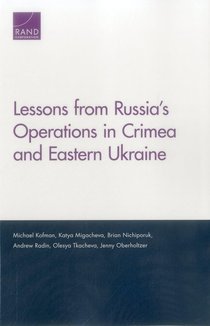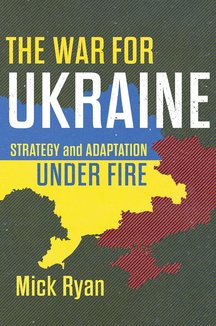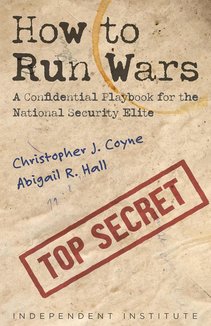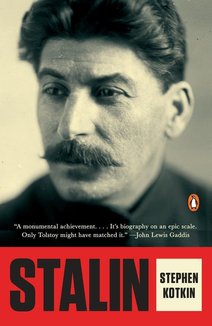Recommended Books

Lessons from Russia's Operations in Crimea and Eastern Ukraine
Authors:
Michael Kofman
,
Katya Migacheva
,
Brian Nichiporuk
,
Andrew Radin
,
Olesya Tkacheva
,
Jenny Oberholtzer
ISBN 13:
978-0833096067
This report assesses the annexation of Crimea by Russia (February–March 2014) and the early phases of political mobilization and combat operations in Eastern Ukraine (late February–late May 2014). It examines Russia’s approach, draws inferences from Moscow’s intentions, and evaluates the likelihood of such methods being used again elsewhere.

The War for Ukraine: Strategy and Adaptation Under Fire
Author:
Mick Ryan
ISBN 13:
978-1682479520
The Russo-Ukraine War is a vital learning opportunity for military strategists across the globe. The first and clearest lesson to be gleaned from it is this: the soundness of a military’s strategy and the nimbleness with which it can adapt to unforeseen circumstances are the two most important factors in deciding victory or defeat. The War for Ukraine analyzes the war through these twin lenses of strategy and adaptation, detailing how each army has succeeded or failed to plan for and adapt to this twenty-first century war. Author Mick Ryan examines the foundations of Ukrainian and Russian strategy for their ongoing war, looking back over several decades to reveal how both sides have evolved their military strategy and force structure. Each has undertaken institutional-level reforms of their military and national security enterprises in the decade leading up to this war. But because the emergent behavior of military forces after fighting begins cannot be fully predicted, these prewar reforms only constitute a starting point for adaptation during the war. Part I of the book covers the role of strategic leadership, with a focus on evolution of strategy since February 2022. From there, the second part of the book delves into how the Ukrainians and Russians have adapted their tactics, organizations, operational approaches, and strategic foundations for war-making throughout the conflict. Central to this discussion are the ways that, regardless of cutting-edge technology, human elements have remained a crucial deciding factor in Ukraine. Ryan shows how good leadership allows a nation to navigate the ambiguity and uncertainty of conflict, while poor leadership leaves it vulnerable to surprises. Likewise, The War for Ukraine offers case studies of the importance of an institution’s ability to nurture and reward human learning as it relates to combat. The book provides strategists, policymakers, and military leaders with a basis from which to plan for constant adaption in military organizations. General readers of contemporary global conflict will also find The War for Ukraine of great interest.

How to Run Wars: A Confidential Playbook for the National Security Elite (Independent Institute Studies in Political Economy)
Authors:
Christopher J. Coyne
,
Abigail R. Hall
ISBN 13:
978-1598133929
A copy of the top-secret memo below recently came into our hands, and we thought we should bring it to your attention! “Dear National Security Elite: In an ideal world, the public would simply accept whatever their leaders— you, in other words—told them. They would comply with restrictions and mandates, not as a matter of mere obedience, but as a matter of unquestionable patriotic duty. But we don’t live in an ideal world. And with the fate of the world, especially the world’s wars, in the hands of our enlightened , benevolent , and eminently responsible national security elite—in your hands, in other words—we can’t afford to risk opening the conversation to an informed public. And we certainly can’t risk asking for anything so antiquated as “consent,” either. Not when the stakes are this high. You simply must learn: How to control the narrative—every narrative—in your favor; How to completely capture the media and effectively quash dissent; How destroying liberty creates more liberty in the long (long) run; Why top-down economic planning, here and abroad, is your best friend; How to flout international, and of course domestic, law and get away with it; And much, much more… The danger with any book like this is, obviously, that it may fall into the wrong hands. If any member of the general public should happen upon these pages, the consequences would be fatal. After all, people may realize that the national security elite— you, in other words—are not, in fact, all-powerful harbingers of peace… They may realize that you are, literally, a force for good… armed and relentlessly attempting to bend the planet to your noble will. And that realization would be nothing short of disastrous. Don’t let this book fall into the wrong hands!” Merciless in their penetrating analysis, Christopher J. Coyne and Abigail Hall have written the satirical portrait of America’s contemporary military-industrial complex. Drawing inspiration from the 1936 classic How to Run a War , by Bruce W. Knight, this book is a must-read for anyone who would know the truth about America’s endless wars and the people who run them…. The truth might just set us free. It will certainly make you laugh. Then—really angry.

Stalin: Paradoxes of Power, 1878-1928
Author:
Stephen Kotkin
ISBN 13:
978-0143127864
A magnificent new biography that revolutionizes our understanding of Stalin and his world The product of a decade of intrepid research, Stalin is a landmark achievement. Stephen Kotkin offers a biography that, at long last, is equal to this shrewd, sociopathic, charismatic dictator in all his dimensions. We see a man inclined to despotism who could be utterly charming; a pragmatic ideologue; a leader who obsessed over slights yet was a precocious geostrategic thinker—unique among Bolsheviks—and yet who made egregious strategic blunders. Through it all, we see Stalin’s unflinching persistence, his sheer force of will—perhaps the ultimate key to understanding his indelible mark on history. Drawing on Kotkin’s exhaustive study of Soviet archival materials as well as vast scholarly literature, Stalin recasts the way we think about the Soviet Union, revolution, dictatorship, the twentieth century, and indeed the art of history itself.